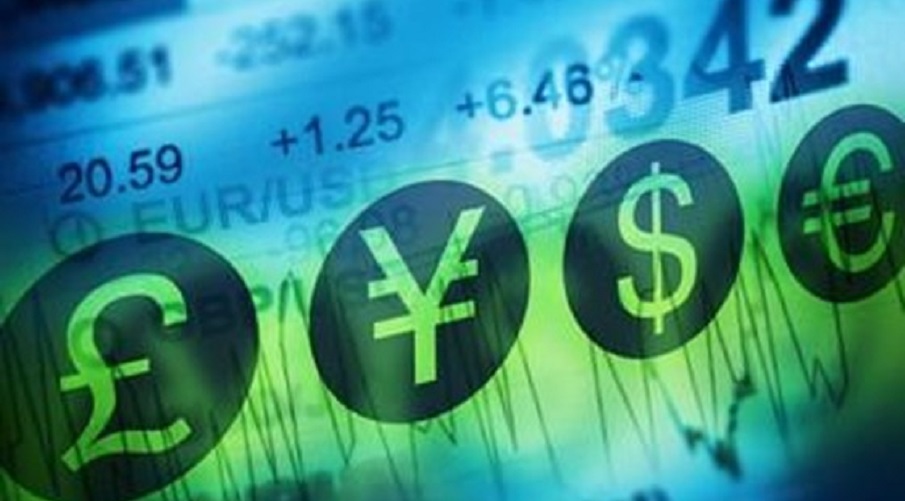One of the biggest stresses in the modern society come from the financial aspect of our lives. There are many ways you can manage stress but sometimes, the best solution might be the most obvious one: make more money.
(Smart) Trading is one of the best ways to add more income into your life aside from your job. But there are many options to chose from (some not that much safe). In this article we will explore some of them.
The foreign exchange (forex) trade is the world’s largest financial market and one of the most lucrative passive investment opportunities.
A survey by the Bank for International Settlements found that the forex market registered $7.5 trillion worth of daily trading volume in April 2022.
But why does the foreign exchange trade hold so much sway in the financial market sector?
Read on as we uncover the perks of trading forex.
The article shall narrow its focus to the benefits of foreign exchange over stocks trading.
5 Cutting Edge Advantages of Forex Trading:

1. Round the Clock Accessibility
Accessibility is one of the core differences between foreign exchange and stock markets. Stocks are limited in terms of the trading hours.
Most stock exchanges in the United States are open from 9:30 am to 4:00 pm, Eastern Standard Time (EST). That may be a long enough duration for full time traders. However, for part time investors with regular day jobs, it leaves little time to study the markets and make sound trading decisions.
That’s where foreign exchange comes in.
The forex market is open 24 hours 7 days per week. So, you can trade at any time of the day or week.
Although most forex brokers are unavailable between Friday 5:00 pm and Sunday 5:00 pm EST, their customer service lines remain operational all week long.
Even better, you can rely on credible forex signals services like Meltory for a deeper analysis of industry trends. The insights obtained from Meltory can be instrumental in determining the ideal time to trade forex.
2. High Liquidity
One of the worst experiences as a trader is to be willing to purchase an asset but be financially incapable. Not only can this have you bypassed by a golden investment opportunity. It may also affect your reputation on Peer to Peer (P2P) trading platforms.
Fortunately, it’s great to know that foreign exchange is the world’s most liquid market. As previously stated, the sector registers trillions in daily trading volumes.
That means you can dispose of an asset whenever you please, as someone will always be ready to pick it up. Well, almost always.
Note that there are dozens of currencies to trade in the forex market. But to have better luck in the industry, you’ll need to pick the most traded currency pairs.
A common mistake beginners make is to think that a currency’s exchange value automatically affects its demand. That’s not necessarily true.
Currently, the Kuwaiti Dinar (KWD) is the most valuable currency, and it trades at around 3.2 USD. However, KWD isn’t featured in many forex bureaus.
3. Low Volatility
Any trader would happily invest their wealth in an instrument that guarantees stability. That’s another reason to prioritize forex over stock trading.
The stock market’s high volatility is largely attributable to the forces driving this industry, especially political factors and company reputation.
A damning exposé can cause a high flying company to lose its reputation overnight, resulting in a drastic dip in its stock prices.
The same is true for unprecedented political instability, which might trigger an outflow of investors.
Since foreign exchange is the most liquid sector in the world, the market doesn’t register drastic volatility.
It takes a considerable period for a currency to shed its value beyond the decimal point, by which an investor would have made a sound decision on whether to dispose of it.
4. Difficult To Manipulate
The global stock market has fallen victim to multiple scams recently. Most of these frauds assume the form of “pump and dump” or “poop and scoop” schemes.
In a pump and dump scenario, fraudsters hype certain stocks by spreading false or misleading information. The idea is to “pump up” demand and price of the stocks so they can sell their shares at inflated prices.
Pooping and scooping also involve spreading malicious information to manipulate the markets. But in this case, the goal is to drive down the demand for a stock.
Foreign exchange, on the other hand, is quite difficult to manipulate. That’s primarily because the market is highly liquid and involves widely traded commodities.
5. Minimal Commissions
Getting started on both the stock and foreign exchange markets requires initial setup costs.
You need significant money to buy the first stocks or currency pairs, depending on the investment option you prefer.
Stock and forex trading also involve some brokerage fees. However, most stock brokers charge considerably higher rates than their forex counterparts.
That’s understandable, considering monitoring the stock markets takes more time and expertise.
Unlike stock brokers, who may levy substantial consultancy fees, forex brokers charge minimal profit based commissions. So, traders only pay when they actually make profits.
Besides, forex traders can eliminate brokerage fees by investing in robo advisers. While these applications are subscription based, the fees pale compared to what human brokers often demand.
What You Should Remember?
Foreign exchange and stocks are the two most profitable financial market sectors. They’re a popular option for anyone looking for a hands off approach to trading.
But if it comes down to picking between the two investment vehicles, you’re better off with foreign exchange.
Factors like low entry barriers, high liquidity, and the ability to trade around the clock make forex trading a more attractive option.
Just be sure to enlist professional help from a licensed broker if you’re new to foreign exchange trading.
You could also invest in a robo adviser if you’re seeking to unlock insightful forex trends without paying hefty consultancy fees.






